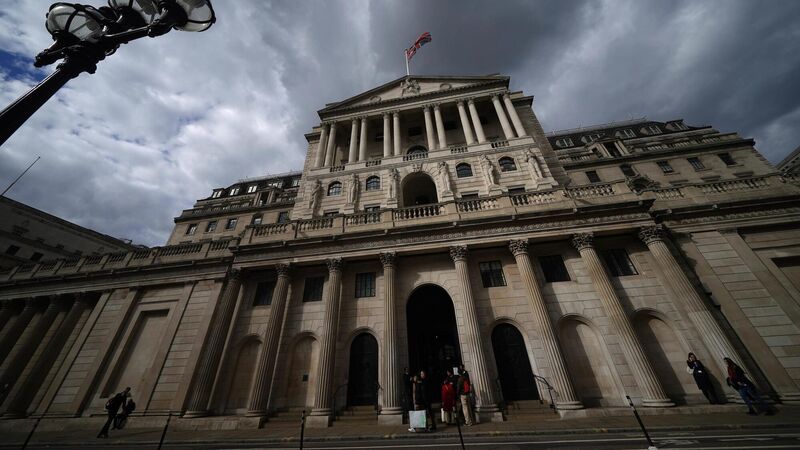Bank of England forced to buy inflation-linked bonds amid 'risk to UK financial stability'

The Bank of England has postponed the start of its sales of bonds until October 31. Picture: Yui Mok/PA Wire
The Bank of England sought again to stem a sharp sell-off in Britain's government bond markets, expanding its emergency buying to inflation-linked debt.
Citing a "material risk" to financial stability after pension firms were hit by the turmoil, the Bank of England split its programme to buy up to £10bn (€11.4bn) of British bonds each day to include up to £5bn of index-linked bonds.











